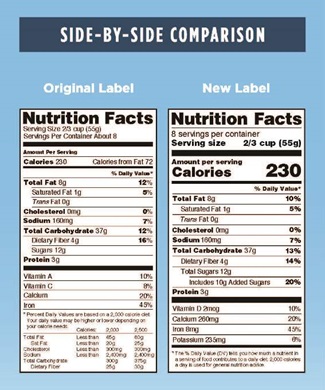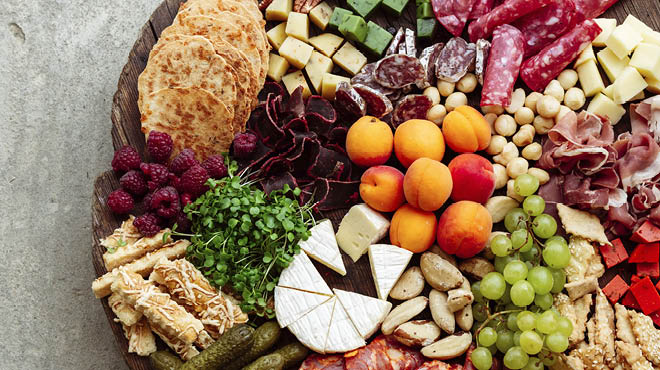Recent Posts
-
 Speaking of HealthFrom inflammation to heart health: The perks of pumpkin in your dietNovember 04, 2024
Speaking of HealthFrom inflammation to heart health: The perks of pumpkin in your dietNovember 04, 2024 -

-

The not-so-sweet truth of added sugars

You have yogurt and cereal for breakfast, a salad for lunch and make a stir-fry for dinner. You haven't had a sweet all day — or so you think. But chances are you've consumed countless grams of added sugar, which is hiding in many foods.
There is added sugar in everything from breakfast cereal to salad dressings to prepared sauces. It can be shocking where you find it once you start reading labels, and all that added sugar adds a lot of negatives to your life.
Consuming too much added sugar is a problem for many reasons, beginning with the number of extra calories it adds to your diet. The American Heart Association suggests that most women consume no more than 100 calories a day from added sugars and men consume no more than 150 calories a day of added sugars. That translates to about 6 teaspoons for women and 9 teaspoons for men. When you consider that 12 ounces of soda can have up to 10 teaspoons of sugar, it's easy to see how many Americans consume far more than what's recommended.
Additionally, eating foods with added sugar fills you up so you have less room for nutritious food. And too much sugar increases your risk for a host of problems, including tooth decay, high triglycerides and diabetes.
Here are some tips for cutting back on added sugar in your diet:
- Read labels.
Knowledge can be a powerful tool when you're trying to change your habits, so reading labels to be more aware of how much sugar is in the foods you eat can help you make healthier choices. - Choose the right topping.
Top your cereal and oatmeal with fruit, cinnamon or nuts to add flavor, and skip the extra sugar. - Rethink your drink.
Drink low-calorie or sugar-free drinks instead of soda or juice. Water is an even better choice. - Cut back on processed foods.
Most have added sugar. Instead, choose fruits, vegetables and other whole foods. - Swap flavors.
Ketchup, barbeque sauce and honey mustard all are high in added sugar. Instead, choose condiments such as fresh salsa or regular mustard. - Redo dessert.
Layer fruit and plain yogurt for a healthy sundae. Or make soft-serve "ice cream" by processing frozen banana slices in your food processor.
It can be hard to cut back on sugar, but it's worth it. By making a few changes in your habits and diet, you can significantly affect your overall health.
How to read a Nutrition Facts label

The Nutrition Facts label is required by the Food and Drug Administration on most packaged foods and beverages. The label provides detailed information about a food's nutrient content and recently was updated to make it easier for consumers to make informed food choices. The changes include:
- The font size was increased for calories, servings per container and the serving size information, making it easier to find and read.
- Products are required to list daily values of vitamin D, calcium, iron and potassium.
- Products are required to list added sugars in grams and as percent of daily value.
- The serving size must reflect the amounts of food and beverages that people are actually eating, not what they should be eating.
In this Mayo Clinic Minute, Angie Murad, a wellness dietitian with the Mayo Clinic Healthy Living Program, explains some of the key Nutrition Facts label changes:
Learn more about nutrition:
- Read about additional changes to the Nutrition Facts label.
- Clean eating: What does that mean?
- Discover 14 common food package claims.
Allyn Wergin is a registered dietitian in New Prague, Minnesota.



